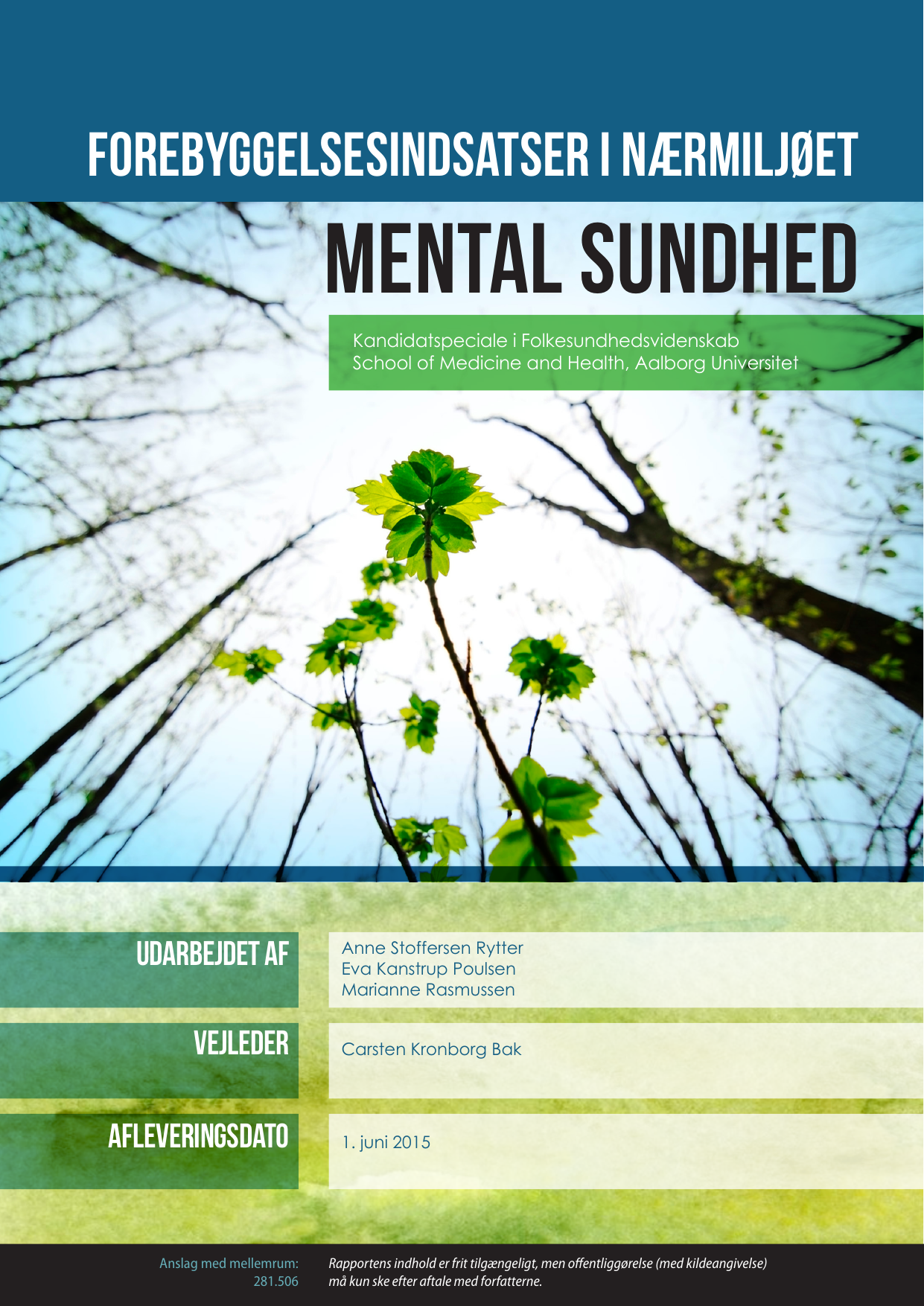
Forebyggelsesindsatser i nærmiljøet - mental sundhed
Oversat titel
Forfattere
Semester
4. semester
Uddannelse
Udgivelsesår
2015
Afleveret
2015-05-31
Abstract
Background: Designing interventions aimed at enhancing mental health may be difficult due to the degree of complexity. Marginalized groups often have a poorer mental health. Deprived neighbourhoods, in which there is an increased proportion of these residents, may be seen as an ideal arena in order to work with health promotion and preventive initiatives in relation to mental health. From 2010 to 2014, 12 municipalities in Denmark worked with mental health during the project Forebyggelsesindsatser i nærmiljøet. However, municipality work on interventions related to mental health has shown to be very difficult. Aim: The aim of the study is to develop recommendations for the future work within mental health with marginalized groups in deprived neighbourhoods. The recommendations are based on the experiences from the Forebyggelsesindsatser i nærmiljøet and the scientific evidence. Methods: This study uses a systematic literature review and a deductive document analysis based on the project descriptions, midterm- and final evaluations of the Forebyggelsesindsatser i nærmiljøet. The systematic literature review aims at identifying evidence-based interventions concerning mental health in deprived neighbourhoods. The document analysis aims at analyzing and discussing the 12 municipalities’ efforts to enhance the mental health, and is conducted on the basis of a theoretical framework consisting of multiple intervention programs and process evaluation tools. Results: The systematic literature review resulted in 15 scientific articles, containing interventions or methods who can be applied in future work concerning mental health in deprived neighbourhoods. The document analysis resulted in eight themes; context, realm of understanding, selecting aims and a population, methods for measuring outcomes, outcome and experiences, initiatives, recruitment and maintenance. Conclusion: In the municipalities’ future work with mental health of marginalized groups in deprived neighbourhoods, it is recommended: An iterative approach should be used, where the methods, approaches and interventions is adjusted systematically and regularly to ensure outcome, and to ensure that the aims are reached with the highest possible benefits. Public involvement should be recognized as an approach. From the very start of the project, an analysis of the community and a priority of the participants should be established. A clear set of goals should be established at the beginning of the project, and methods for evaluation should also be considered. Theories which can help provide effective approaches for the participants should be involved. A combination of multiple levels of the system should be integrated. Knowledge of the context should be involved in the choice of recruitment strategy, and the adjustment of the recruitment strategy should be based on knowledge of the participants. To ensure maintenance it is recommended to include volunteers as a resource in the local environment, and it should be recognized that the maintenance will require time and resources. Keywords: mental health, deprived neighbourhood, marginalized groups, multiple intervention programs.
Emneord
